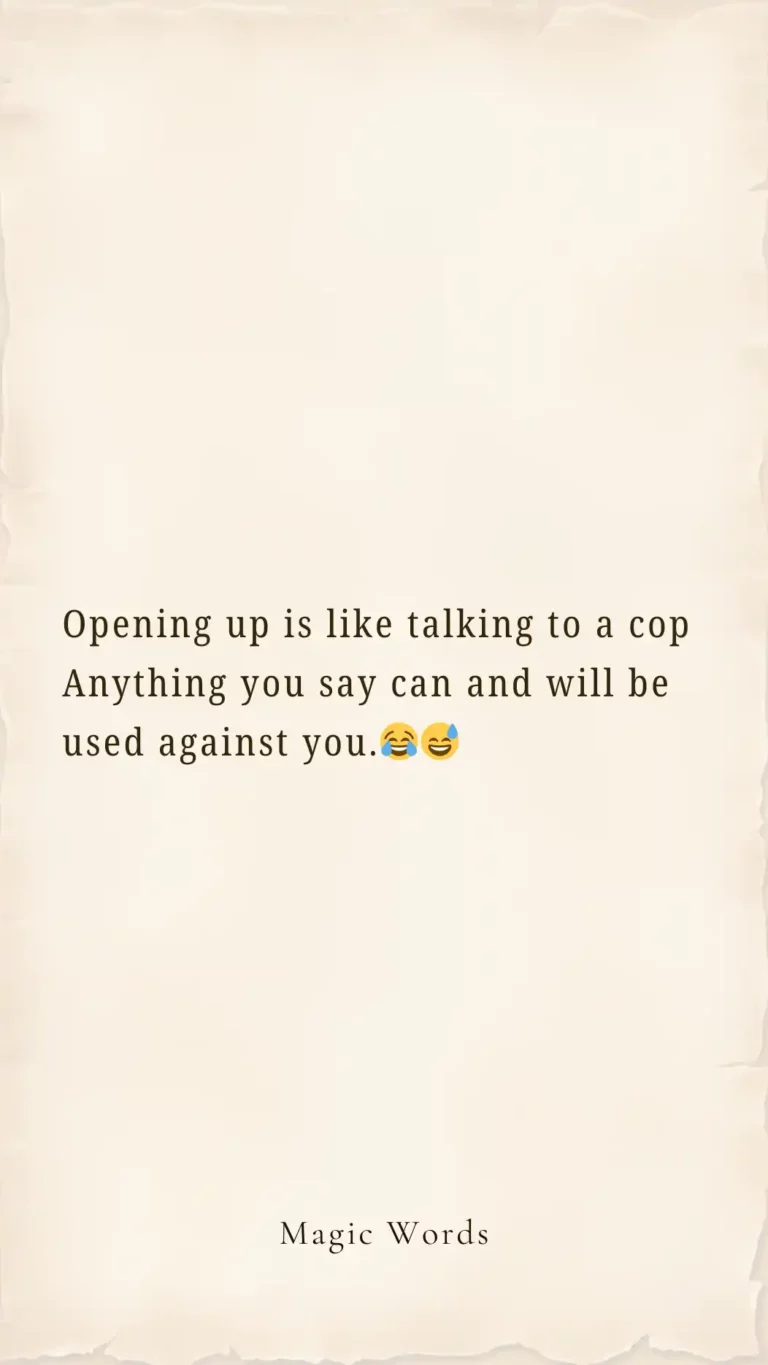Opening Up Is Like Talking to a Cop: Anything You Say Can and Will Be Used Against You
Let’s face it: opening up to someone can feel like walking into an interrogation room. You sit down, nervously twiddling your thumbs, and suddenly your brain goes, “Anything you say can and will be used against you.” And honestly? It’s not wrong.
You tell your friend, “I’m so bad at texting back,” and three weeks later, when you haven’t responded to their meme, they’re like, “Remember when you admitted you were the worst? Yeah, this is why I don’t trust you.” Bam! Exhibit A.
Or maybe you confide in your partner, “I’m trying to eat healthier,” and the next time you’re halfway through a bag of chips, they hit you with that look. You know the one. Suddenly, your chips taste like guilt.
Opening up is a beautiful thing—don’t get me wrong. It’s about connection, vulnerability, and letting people in. But let’s not ignore the fact that it can also feel like handing someone a loaded water balloon and hoping they don’t throw it back at your face.
Why Does It Feel This Way?
Because humans are weird. That’s why. We love to connect but also secretly love to keep receipts. It’s not malicious (most of the time); it’s just how our brains work. People remember things, especially the juicy tidbits you casually dropped during a vulnerable moment.
And let’s be real: we’ve all been on the other side of this too. Your friend tells you they’re scared of birds, and suddenly every pigeon on the street becomes a comedy opportunity. “LOOK OUT! IT’S COMING FOR YOU!” Hilarious for you, mildly traumatic for them.
How to Open Up Without Feeling Like You’re in Court
- Choose Your Jury Wisely
Not everyone deserves to hear your deepest secrets. Share your feelings with people who’ve proven they won’t weaponize your words later. If someone has the emotional intelligence of a potato, maybe skip the heart-to-heart. - Set Boundaries
It’s okay to say, “Hey, I’m sharing this with you because I trust you, so please don’t bring it up unless I do.” It’s like putting a “Do Not Touch” sign on your emotional baggage. - Laugh It Off
If someone does throw your words back at you (playfully or otherwise), lean into it. “Yeah, I said I was bad at texting back—thanks for reminding me! Now I can disappoint you even faster.” Humor is your best defense mechanism.
FAQs
Q: Is opening up even worth it if people might use my words against me?
A: Absolutely! Sure, there’s risk involved, but there’s also reward. Deep connections are built on vulnerability, and sometimes you have to take the leap—even if it feels like freefalling into a courtroom drama.
Q: What if someone keeps bringing up things I said in the past?
A: Politely remind them that you’ve grown since then. Or just hit them with, “Wow, you’re really holding onto that, huh? Should we get it framed for you?”
Q: Can I just keep everything to myself forever?
A: Technically, yes. But that sounds lonely—and honestly, kind of exhausting. Sharing is caring… just maybe not oversharing.
In conclusion, opening up is like talking to a cop: it can be nerve-wracking, but it’s also necessary for building trust and connection. Just remember to choose your audience wisely and keep a sense of humor handy—you’ll need it!





